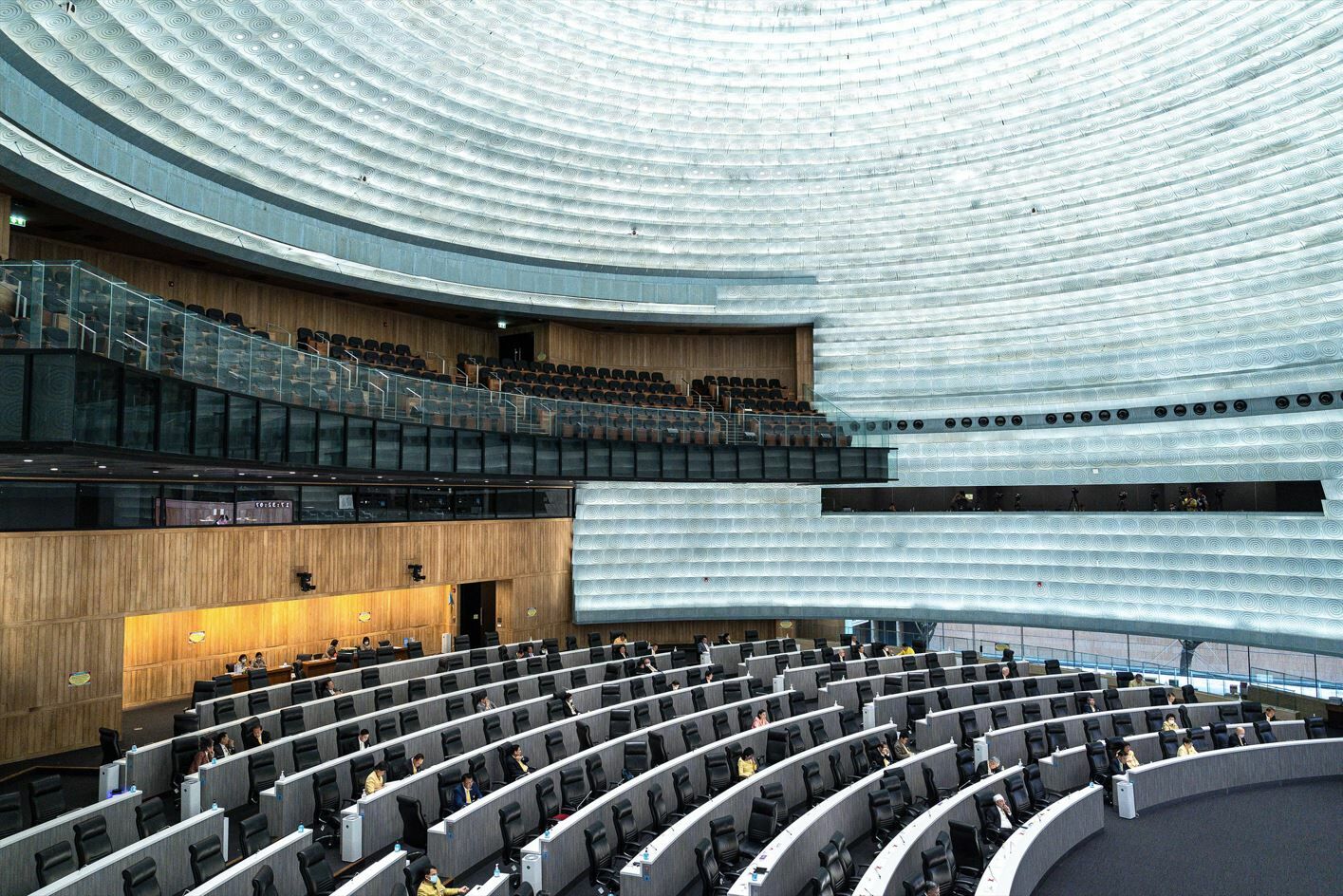Bhumjaithai Party allies dominate new Thai Senate

The new Senate is poised to play a crucial role in the forthcoming political power dynamics and efforts to amend the Thai constitution. Observers note that the Upper House is now heavily influenced by senators with connections to the Bhumjaithai Party, the third-largest political faction in Thailand.
The newly elected Senate Speaker and one of his deputies are perceived to be politically aligned with Bhumjaithai. This blue bloc, a term referring to Bhumjaithai, is believed to be the largest faction within the Senate, comprising at least 150 senators. This dominance significantly enhances the party’s leverage and political influence.
Although the new senators no longer have the authority to join Members of Parliament in electing a prime minister, they still hold substantial powers. These include participating in the passage of laws and constitutional amendments, endorsing appointments to independent organisations and the Constitutional Court, as well as overseeing the executive branch.
Any proposal to amend the constitution requires the support of one-third of the 200 senators, or at least 67 senators. Without this backing, no charter amendments can proceed.
Thanaporn Sriyakul, Director of the Political and Public Policy Analysis Institute, commented on the challenges facing the opposition Move Forward Party’s push to amend the constitution. He noted that the proposed changes, particularly to Chapters 1 and 2, which define Thailand as a kingdom with a democratic regime and the king as the head of state, are likely to encounter resistance from the new Senate.
“Most senators wouldn’t oppose charter amendments as long as Chapters 1 and 2 are left untouched, reflecting Bhumjaithai’s stance.”
Lese Majeste
Bhumjaithai leader and Interior Minister Anutin Charnvirakul has also insisted that Section 112 of the Criminal Code, known as the lese majeste clause, must remain unchanged.
Thanaporn further highlighted that the blue camp is already increasing Bhumjaithai’s political leverage, exemplified by its dispute with the ruling Pheu Thai Party over the reclassification of cannabis. Bhumjaithai, which advocated for the decriminalisation of cannabis, is at odds with Pheu Thai’s efforts to reverse this policy.
Prime Minister Srettha Thavisin has reportedly ordered a cannabis control bill to be tabled before parliament, suggesting a possible compromise to avoid returning cannabis to the narcotics list.
Olarn Thinbangtieo, a political science lecturer at Burapha University, identified that the blue camp comprises not only senators linked to Bhumjaithai but also those connected to the old power clique, including former government officials, retired military officers, and local politicians.
“Their main mission is to prevent the passage of laws that undermine their power and privilege.”
Olarn also echoed the sentiment that attempts to amend charter provisions related to the monarchy would face strong opposition from conservative senators.
Charter amendments
Stithorn Thananithichot, Director of the Office of Innovation for Democracy at King Prajadhipok’s Institute, stated that senators from the blue camp will be pivotal in charter amendments and the selection of members of independent agencies.
“Anyone aiming to achieve their goals must negotiate with these senators. Certain charter provisions can only be amended if the senators agree.”
He noted that while the previous 250 junta-appointed senators were controlled by former Prime Minister Prayut Chan-o-cha and Gen Prawit Wongsuwon, the new Senate, dominated by Bhumjaithai’s blue camp, still maintains good relations with the same leaders.
The political manoeuvring within the Senate underscores the complexities and strategic negotiations that will shape Thailand’s legislative landscape in the near future.
Latest Thailand News
Follow The Thaiger on Google News:


























